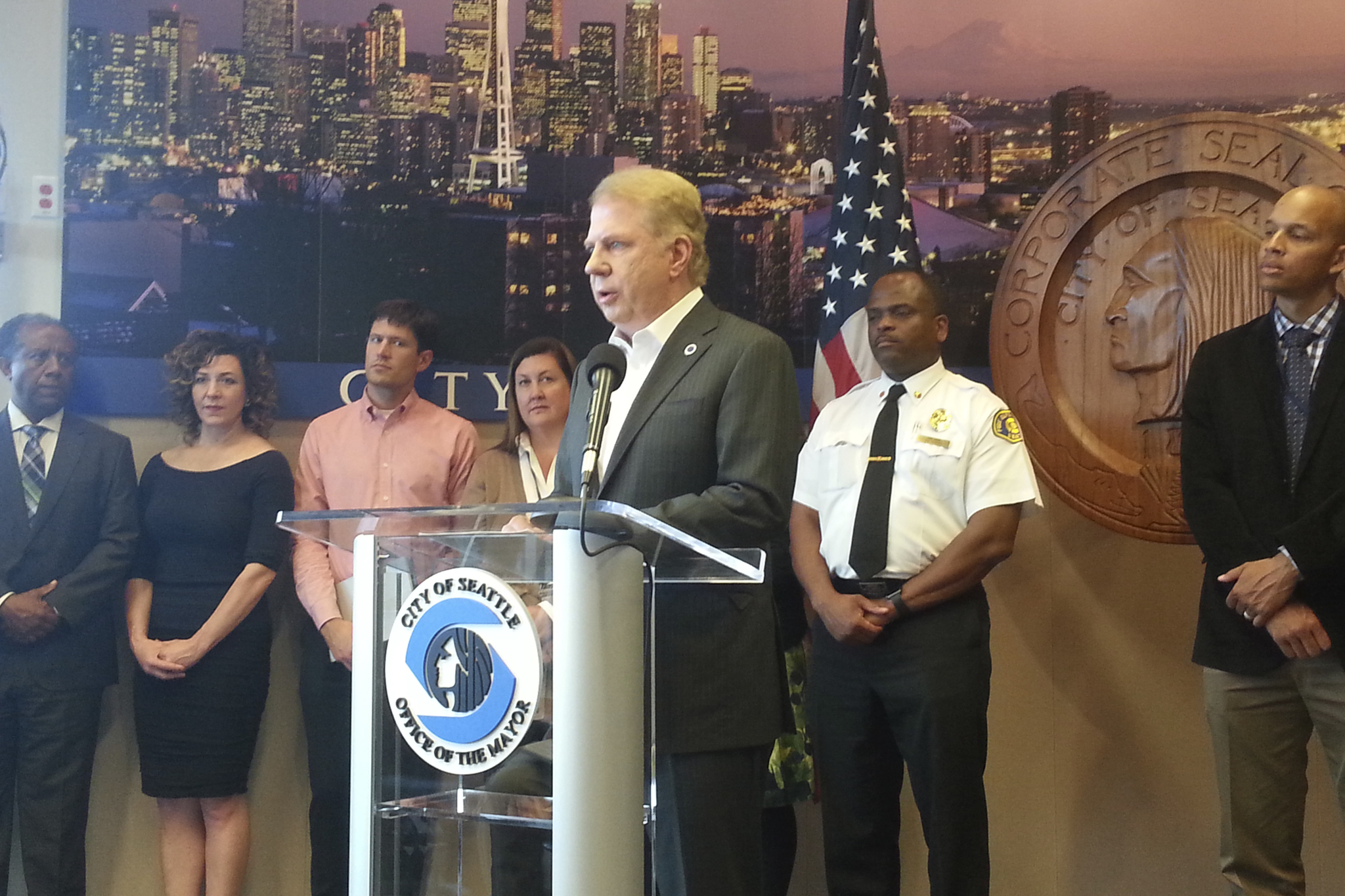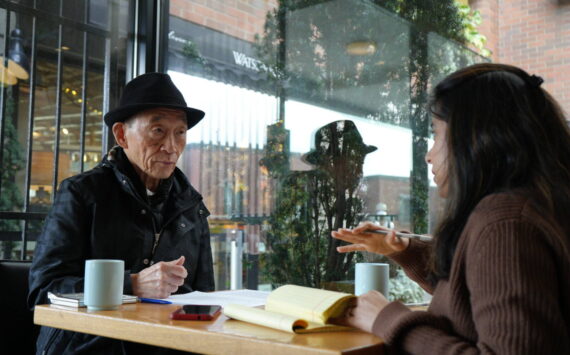Seattle Mayor Ed Murray said in a press conference this afternoon that the killing by police of two black men earlier this week has left him “deeply disturbed.” Tuesday night, police officers in Baton Rouge pinned Alton Sterling to the ground and shot him to death. Wednesday night near St. Paul, Minn, a police officer shot Philando Castile dead after pulling him over for a traffic stop. You can see video of both killings here.
“Had Castile and Sterling been white, I believe they would be alive today,” Murray said, echoing statements by Minnesota Governor Mark Dayton. “Their deaths are two in a long line of tragedies that feed distrust between communities of color and police.
“We cannot let this gulf of distrust divide us and continue to cause us fear.”
But Murray also defended ongoing secret negotations between the city and the police officers’ union, saying that he believes the negotiations—which will likely limit the strength of police oversight and discipline in Seattle for years—should be treated like any other labor negotiation. Police reform advocates have called for the negotiations to be public. After The Stranger published leaked documents which appear to show a draft contract that lacks strong reforms, Murray threatened to sic the FBI after the leaker. Today he called secret collective bargaining “a core democratic principle.”
“Collective bargaining is a process that was established in law to protect workers and labor unions in this state,” he said today. “It was a pretty bloody battle in the 1990s against the Republicans to get there. It is a process I respect. I believe we need to enter into negotiations with labor in general if we are going to change how collective bargaining works…I’m happy to open it up with the labor movement, but I’m not going to start doing what they’ve successfully done in Wisconsin…. I’m absolutely not opposed to it, if we can get labor there.”
Ijeoma Uluo, editor at The Establishment, responded to Murray’s analogy this way:
Just saw @MayorEdMurray say Black Lives Matter & then w the same mouth say ppl who want transparency in SPD negotiations r like Scott Walker
— Ijeoma Oluo (@IjeomaOluo) July 7, 2016
One key issue in those contract negotiations is whether hearings in which police officers appeal discipline taken against them should be open to the public. Like the contract negotiations themselves, disciplinary appeal hearings are currently secret. Murray said that he would support making those hearings public “the same as you would have in court” only “if we can get there in a way that ensures that everybody—both the victims and the police officers—have the protections that they need.”
Though reluctant to speak on some details of the contract negotiation, Murray was willing to describe others. “In the coming months I will send legislation [pursuent in part to the police contract] to the Seattle city council that will expand and strengthen civilian oversight and independent review of the Seattle Police Department.” Murray said he hopes to create “a permenant citizen oversight commission that will be the strongest in the city’s history,” as well as “a more independent director and office of police accountability, modeled on the Ethics and Elections Commission of this city, which is independent of the mayor and council.” Finally, he said, he wants to “create a stronger [police oversight] auditor, and to make it a full-time and permanent position, to review police discipline on the model of an inspector general.”
“I know that the black community is walking with a heavy heart and a sense of outrage,” Murray said. “We are in the process of creating a model for use of force, a model that is being replicated throughout the country.
“As we move forward in our conversation, it can’t be about blaming black men…It must be about changing the institutions and our systems. Often the police are at the receiving end of other failed institutions when it comes to race.”








